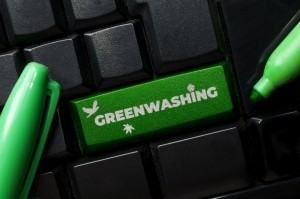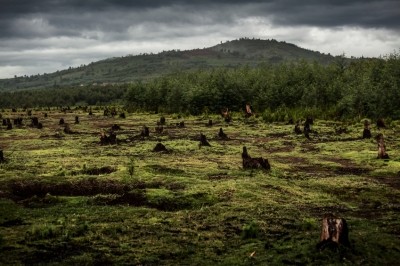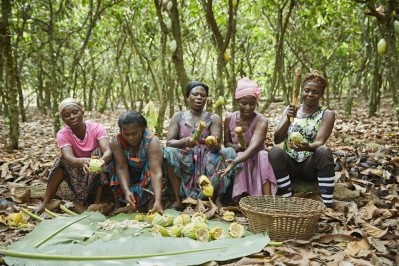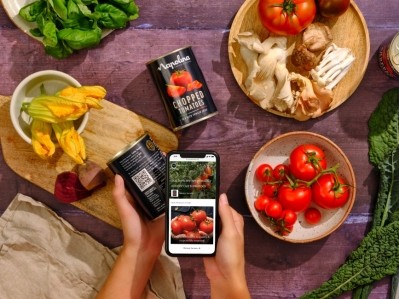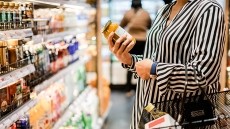Radical transparency is needed to overcome ‘greenwashing’ scepticism

Products marketed as sustainable are driving product and category growth.
According to research from the NYU Stern Center for Sustainable Business and IRI, between 2013 and 2018 products with sustainability claims saw sales increase 29%, way ahead of an overall flat market. Despite representing only 16.6% of the category, these FMCG products delivered 50.1% packaged goods market growth in the period, reporting a CAGR 5.6 times higher than products not marketed as sustainable.
The mainstreaming of demand for ethical products has increased competition among brands who increasingly vie to be seen as sustainable or ethical.
According to Jessi Baker, founder of traceability start-up Provenance, this situation has led to concerns over so-called greenwashing, when brands make false promises or promote good intentions whilst hiding darker realities.
“Greenwashing is increasingly an issue today because the market for sustainable goods is evolving at such a pace,” Baker told FoodNavigator. “There is growing pressure on brands to keep up with shopper demands in sustainability, and global FMCG brands are now having to catch up to meet ethical standards that were set by smaller, independent companies. Ethical promises which were once a nice-to-have, have quickly become the new minimum standard for conscious consumers who demand transparency across every item they buy.”
If a product is associated with greenwashing its sustainability claims, this can have significant reputational consequences.
A study published last year, ‘Greenwashing effect, attitudes, and beliefs in green consumption’, concluded: “When greenwashing is identified in the product, it loses the aspects of loyalty, satisfaction and benefits, as well as becoming a product that causes confusion of consumption.”
Large corporations, in particular, face scepticism over their green credentials. As Baker noted, it is after all ‘inherently more difficult’ for brands with complex global supply chains to meet these higher standards with ‘integrity and authenticity’. As a result, she observed, “claims become opaque, more often than not sitting within marketing instead of across companies as a whole. Implementing sustainability and transparency spans the business and requires much more work.”
Beyond the PDF: The future of transparency
For corporations to build trust in their sustainability claims, they need to ‘be transparent with integrity’, Baker suggested.
“Transparency is a journey, but it’s important that companies disclose information in a way that’s increasingly comprehensive, comparable and credible."
Shoppers don’t want to wade through CSR reports but for every claim made at a product-level, businesses must have the information to back it up. “This is so that those who protect citizen interest – from NGOs to journalists – can delve deeper. Credible information means providing proof to enable shoppers to differentiate between greenwashing and relevant facts,” Baker believes.
Provenance is a SaaS start-up that leverages blockchain technology to gather product information and track product journeys in a way that is secure, trustworthy and accessible. With Provenance, every product can get a ‘digital passport’ enabling shoppers to trust the claims on a label, and discover where the product was made, by who and when.
As the company’s founder and CEO, Baker believes new technologies are supporting the evolution of transparency. “In the future, being transparent through a PDF (or another non-editable/exportable format) with no clear methodology to understand the metrics will not be tolerated. It will mean machine-readable data set out against open standards; the brands that are thinking about the future of trust are acting on this already.
“Public evidence and reputable assurance will be key components of future product differentiation based on sustainability claims.”
Open standards and equivalency
Thomas Slaugh, who works in enterprise solutions business development at data connectivity and analytics company Proagrica, added that open standards and equivalency partnerships will be important to building consumer trust in a more transparent future food system.
“Without the establishment of universally defined ethical standards, there will continue to be scepticism from consumers around the provenance of the produce they consume,” he told FoodNavigator.
He revealed that Proagrica is ‘seeing growth’ with third-party sustainability platforms designed to address this, such as SAI Platform, Cool Farm Tool and Field to Market. “By meeting targets across the platform, they allow companies to make claims that they are following established standards. Equivalency partnerships across the platforms help remove any confusion across member companies. This is similar to how the Non-GMO Project created its own standards in the absence of governmental definition, thus providing companies an opportunity to make an industry standard from a marketing claim.”
While consumers might expect ever higher levels of transparency, time-poor shoppers also want simple stories. And Slaugh suggested this is where third-party accreditation can play an important role.
“Third-party platforms that are establishing standards provide consumers with the ‘simple’ stories they need to make informative decisions. Without provenance and transparency, there are few or no effective ways to measure their impact and hold companies accountable to the claims they make. The average consumer does not understand things like different crop defence strategies employed by farmers, but if they meet the standards of an informed organisation like Field to Market then they can be confident in that product’s development through the supply chain.”
Indeed, third-party accredited schemes allow consumers to easily compare the sustainability claims of different brands. But Baker observed companies are increasingly choosing to ‘write their own standards’ – such as Mondelez International’s internal Cocoa Life scheme – and stressed that the third-party players themselves need to ensure full transparency.
“Third-party standards provide a common baseline – a consistent method from business to business aiding all stakeholders in understanding and progress. Brands are increasingly choosing to write their own standards – not always for insincere reasons. However, those standards must be public and use comparable terms and metrics to common third-party standards.
“We are moving away from the days of badges on products without data or proof. The future of certifications must include transparency of the impact behind the badge.”
Data and transparency driving innovation
Knowledge is power, as the saying goes. Greater transparency around what is in the food we eat and the conditions under which it was produced is placing power over the food system in the hands of consumers.
In turn, this is shaping the sector's approach to production and innovation, Slaugh believes, right down to the types of crops that are growing in the field.

“Greater supply chain visibility is democratising what crops are produced and how. Eight years ago consumers would have struggled to find affordable Non-GMO corn starch [in the US] because of insufficient supply; but barely four years later, it was readily available thanks to a dramatic increase in demand within a short period.
“Increased demand in produce caused by consumers’ better [understanding] makes it profitable for growers to invest in different produce and this in turn boosts supply and lower costs for consumers.”
This links to growing concerns around – and awareness of – the connection between diet and health. “Understanding where your food came from and how it was produced allows the consumer to make a more informed decision on what they put into their bodies,” Slaugh explained.
A case in point is the dramatic rise of the plant-based meat category, where a sudden jump in demand is being supported by massive investment that is shifting the types of crops being grown to support production. “This has all been made possible due to consumers having greater information at their disposal and a shift in what people want to consume,” the data and analytics expert claimed.
Baker agrees that access to information means commerce can be leveraged as a ‘force for good’ as we adopt healthier, more sustainable diets. Indeed, this was one of Provenance’s founding principles.
“This is the core reason why we created Provenance: to create the oh-so-needed bridge between brands and citizens – driving commerce as a force for good.”
This requires making the complex world of supply chain and sustainability initiatives simple and accessible. Provenance achieves this by layering information in a way that’s ‘digestible and easy to understand at a glance’.
The problem facing many CPGs is that this kind of radical transparency requires them to go beyond touting the progress made to acknowledge areas where further work is needed. While consumers might not want to eat chocolate or drink coffee associated with child labour or deforestation, for instance, work to stamp out such practices can only take place when the problem is acknowledged.

Fear of criticism can tempt corporations to carry out this work behind closed doors. But Baker insisted that this is not the way forward.
“Regarding the fear of backlash that a brand might receive for being this open, our answer is more communication. For us, this goes beyond the ads and into impact. It’s about more dynamic data and showing what you're doing to tackle the problem.”
Data and insight tools and transparency within the supply chain offer an opportunity to support sustainable innovation, Slaugh added.
"The collection of current information, integrating them into standardised datasets, and executing analyses provide the framework for how we can improve our current processes throughout the food supply chain. With more data collected digitally, we can improve analysis outcomes with machine learning and AI to create more efficient and detailed improvement opportunities. Through encouraging greater transparency and collaboration across the supply chain, data and analytics can bring reality to necessary sustainability goals."
